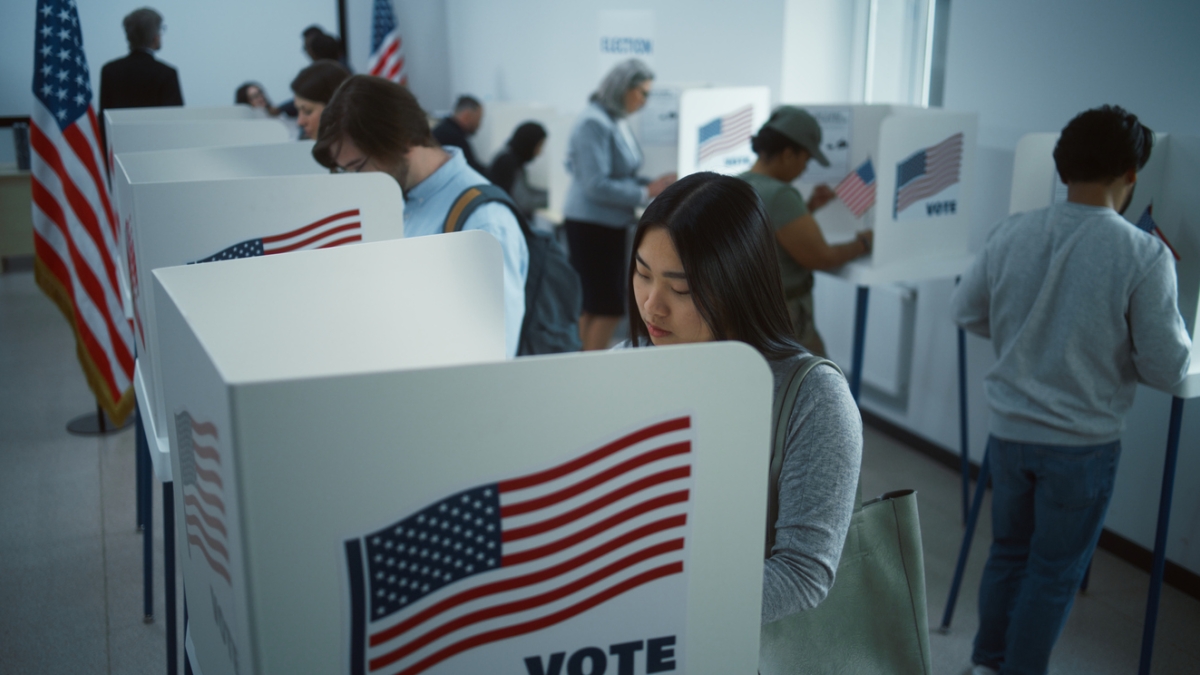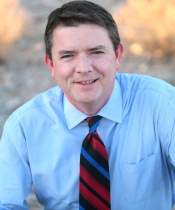New ASU lab aims to restore public election confidence, encourage careers in field

Photo courtesy of iStock/Getty Images
Bill Gates understands why recent close local election results have led some people to voice distrust in how the process was conducted.
That lack of public confidence is one reason why Gates, a Maricopa County supervisor, is teaching about the intricacies of elections administration and directing research at the new Arizona State University Mechanics of Democracy Laboratory, or MODL (pronounced “model”), starting this fall.
“One thing I love about Maricopa County is we have close races,” Gates said. Just as a close game draws more sports fans, narrow results get more public attention, he said.
“Who wants to watch a blowout?” said Gates, who will leave the board of supervisors at the end of his second term in December. “The crowd doesn’t yell at the ref in a blowout. They only do in close contests.” Gates said MODL was created to respond to a growing number of voters on the losing sides of elections who deny the results and level false fraud accusations against those in charge.
But while it’s one thing to shout displeasure at an official over a close call, it’s another to threaten that official’s life.
Gates, a Republican, experienced this reality firsthand. He and other supervisors endured name-calling, harassment and unfounded allegations after they upheld the results of the 2020 and 2022 elections, according to several media accounts.
Gates and his family even received many anonymous threats, causing him to suffer effects of post-traumatic stress disorder.
Correcting misunderstandings, misinformation
Watts College of Public Service and Community Solutions Dean and President’s Professor Cynthia Lietz describes MODL as an important addition to the college’s commitment to preserving the nation’s democracy, a strategic priority this academic year. The new laboratory joins an existing portfolio of research centers and initiatives advancing this effort.
Through MODL, Gates said he wants to devote his post-politics career to correcting misunderstandings and mis- and disinformation through public education while encouraging students to seek careers in running elections.
The lab will offer resources and training for different segments of society, from voters and journalists to elections administrators and poll workers, especially those in smaller jurisdictions.
The laboratory, based in the School of Public Affairs at the Watts College, involves collaboration by Gates, a professor of practice; school Director and Professor Shannon Portillo and school Professor Thom Reilly.
Portillo served as an elected Democratic member of the Douglas County (Kansas) Commission prior to assuming her ASU position in 2022. Reilly is co-director of the School of Public Affairs’ Center for an Independent and Sustainable Democracy and former county manager of Clark County, Nevada, whose county seat is Las Vegas.
The new laboratory also complements the college’s Congressman Ed Pastor Center for Politics and Public Service, which has made significant strides to engage young people in the political process.
Pastor Center Executive Director Alberto Olivas praised Gates’ years of honorable service in county and municipal elective office. Gates also was a Phoenix City Council member from 2009 to 2016.
Will ‘improve public awareness’
“Supervisor Gates was the recipient of the Pastor Center’s 2023 Public Service Leadership Award due to his heroic defense of the integrity our elections and voting systems,” said Olivas, who previously served as state voter outreach director at the Arizona Secretary of State’s Office. “I’m so excited to now have Bill head up efforts to improve public awareness and understanding of how our elections system works, and to encourage a new generation of public servants to consider careers in this critical field.”
Olivas said MODL’s offerings add to the comprehensive and wide-ranging educational experiences students receive at the college through his center and the Center for an Independent and Sustainable Democracy.
“As a former elected official, and as an overseer of elections in our county, he’s ideally suited to speak to the realities of governance, elections and voter engagement in a compelling way for our students,” Olivas said. “His new lab, MODL, will be an immensely helpful partner for the Pastor Center as we work together to prepare a new generation of informed, engaged and effective public policy leaders.”
Lietz said, “I could not be more pleased to have Bill Gates, Thom Reilly and Alberto Olivas leading the way as we prepare the next generation of leaders to be informed and prepared for civic engagement, an essential component of democracy.”
Portillo said the lab’s focus, including smaller jurisdictions, is important. For example, she said, many rural Arizona elections are being decided by fewer than 2,500 votes.
“What people often forget about elections is more of them are run at the rural level; more small communities are running elections that don’t have as much infrastructure as urban areas,” she said. “Urban areas have more voters, but rural areas have more apparatuses. In Douglas County, Kansas, we had to do everything big counties do.”
Convening people across the nation
Gates said the laboratory is poised to gather people nationwide to learn what actually goes into fair and efficient elections administration.
“The days of elections running smoothly and we all accept the results are no longer, at least for the time being,” Gates said. “One thing we can do is convene folks here and in D.C., and even in L.A., for discussions about how our democracy works, to ask, is it working, how can we improve it and how can we respond to all this misinformation that’s been out there for the past four years.”
Portillo said Gates will work with senior faculty, starting with her and Reilly, in team-teaching.
“Long term, Bill will be building more offerings in elections education,” she said. “Right now, only two universities have elections administration certificates. … None are west of the Mississippi River.”
Reilly said that “it’s a great coup” for the university to secure someone of Gates’ experience for the laboratory.
“He’s been front and center in Arizona about dealing with elections denial and those questioning the system. He’s lived it, he’s been part of it,” Reilly said. “That’s invaluable to bring to students in the classroom.”
Reilly said students will learn of some of the main problems in elections administration.
“Do we have enough workers? How do we have a pipeline of students who are interested in this work? What are the challenges and landmines? All this information is both from a classroom perspective and from a national perspective, and it is important,” Reilly said. “We’ll look at the mechanics of it, whether it is done correctly, and how do you navigate the distrust that’s out there.”
Portillo said the laboratory will focus on helping the public understand the roles played by the large number of elections administrators who are not elected.
She said the laboratory also will work alongside other School of Public Affairs-based centers, such as Bob Ramsey Executive Education, which trains public service professionals by enhancing their competencies in management and leadership, and improving their ability to serve their communities.
Gates said the laboratory’s base on ASU’s Downtown Phoenix campus is close to both the Sandra Day O’Connor College of Law and the Walter Cronkite School of Journalism and Mass Communication, reflecting the important roles lawyers and journalists play in elections administration.
More Local, national and global affairs

Higher education key to US competitiveness, security
ASU President Michael Crow’s notion of universities as public service institutions — places that serve society in practical and meaningful ways to solve pressing issues of importance to the country…

Military program leaders learn about breadth of ASU's defense-focused initiatives
Arizona State University seeks to be the U.S. military’s top partner in strategic learning and innovation. To advance this vision, the Office for Veteran and Military Academic Engagement hosted…

Expert discusses America's place in outer space with ASU students
If you asked Esther Brimmer about what security issue the United States should focus on next, she might say the moon. In fact, that’s exactly what she recently told a student at an event hosted by…


